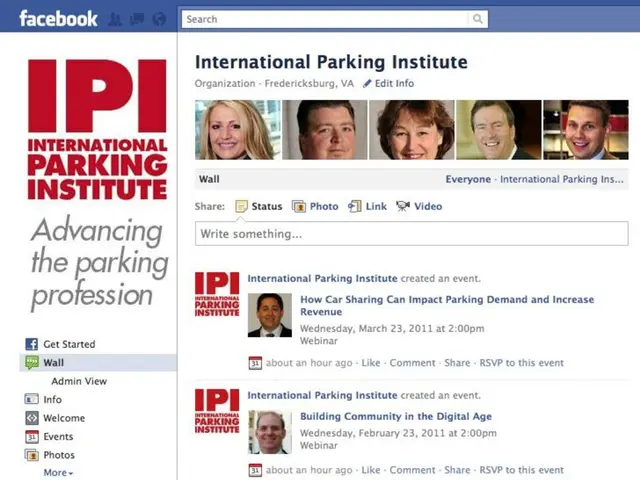Adjusting to Work After Break: Strategies to Cope with Post-Vacation Stress
As a compassionate and dedicated blogger, I'm passionate about shedding light on invisble disabilities, specifically mental health and self-care. Today, I want to delve into re-entry anxiety, a common sensation many folks experience returning to work or education after a prolonged absence.
Table of Contents
Toggle---------------------------------- ## What Is Re-Entry Anxiety?
Whether it's leave from the workforce, education, or family reasons, returning to employment or studies can be daunting. Anxiety about coping or being judged by colleagues or peers is common, and this concern is known as re-entry anxiety. Research shows that women more frequently experience it due to greater chances of career breaks or stepping back because of maternity and childcare concerns.
Mind (n.d.) provides a comprehensive overview on returning to employment, offering valuable insights on handling re-entry anxiety. The study by Wiant (1997) also sheds light on the thoughts and feelings of women re-entering education, emphasizing their concern about fitting in with younger students.
The impact of COVID-19
Many have adjusted to working and living patterns during the pandemic, transitions that often caused feelings of isolation. Upon returning to pre-COVID routines, re-entry anxiety was prevalent as people grappled with uncertainties and fears. Studies have also shown that children and adolescents returning to education after prolonged hospitalization experience adjustment issues, similar to re-entry anxiety (Hen, 2022).
Wiederhold (2022) further explains the post-COVID re-entry anxiety phenomenon, and its persistence for some, causing them to continue working remotely or in hybrid models.
--------------------------------- ## Causes of Re-entry Anxiety
Why do we feel this way? Below are the primary causes:
- Change of Routine and Structure: Time away from work or education leads to a loss of structured rhythm — making it harder to adapt when we return.
- Fear of the Unknown: Returning to our previous roles can be nerve-wracking, plagued by insecurities about our ability to cope and fears of encountering new challenges or industry changes.
- Fear of Failure: We might be worried about not meeting expectations or performing at our previous levels, linked to perfectionism, procrastination, and impostor syndrome.
- Fear of Rejection: Job hunting can embolden feelings of rejection, worrying about scrutiny due to employment gaps or age differences during re-entry to education.
- Fear of Change: The constant evolution in the job market and education might leave us anxious about adapting to new technologies, processes, and ways of working.
- Adjustment Anxiety: Worries about adapting to the demands of work or education after a break are significant contributors to re-entry anxiety.
- Fear of Skill Decay: The concern that our skills may become dull or outdated during the break is common.
- Performance Anxiety: Anxiety about not meeting expectations or struggling to perform at our former levels is a frequent cause of re-entry anxiety.
- Self-confidence: Time away from work or education can erode self-confidence, further exacerbating re-entry anxiety.
- Work/Study-Life Balance: Concerns about integrating new commitments and responsibilities, impacting our personal lives, make for a challenging adjustment.
------------------------------- ## How to Ease Back into Work and Overcome Re-Entry Anxiety
According to Filipponi-Berardinelli's (2013) study, participants benefited from their re-entry experience, reporting personal satisfaction. Despite the small sample size, this research highlights the potential benefits of conquering the initial re-entry anxiety hurdle.
To alleviate re-entry anxiety and increase our chances of success, try the following:
- Research your industry: Familiarize yourself with industry trends, in-demand skills, and requirements to tailor your CV and cover letter effectively.
- Know your rights: Discuss any accommodations or support needed with your employer to establish a supportive work environment. Your employer should have a returning to work policy — to ensure their readiness for your return and offer resources for your preference, like reduced workloads or phased returns.
- Face your fears: Embrace going headfirst, but at your own pace, to tackle re-entry anxiety. Request a return-to-work meeting, which can provide reduced workloads, phased returns, and other strategies for a smoother transition.
- Goal setting: Identify short-term and long-term goals to track progress, providing you with a sense of achievement.
- Comparisons: Avoid comparing yourself to peers, focusing on personal growth and progress instead. Compare your present self to the person you were before re-entry to better understand your progress.
- Interviews: Practice interviewing techniques to build confidence and acclimate to the interview process. Online mock interviews and sample interview questions can aid preparation.
- Skill remastery: Brush up on rusty skills with short refresher courses or practice session, boosting your confidence when re-entering education or employment.
- Build your network: Connect with people in your industry through attending events, joining professional organizations, or LinkedIn networking.
- Gradual Integration: Re-entry anxiety stems from worries about fitting back into structured environments or social settings. Allow yourself to adjust gradually to ease back into the flow.
- Start small: Consider part-time, temporary roles or volunteer positions to test the waters and build your confidence. For education, take free online courses to become accustomed to the writing style and assessment format.
- Challenge your thoughts: Identify and challenge negative thoughts that may be unrealistic, focusing on realistic responses instead.
- Set Healthy Expectations**: Understand reasonable expectations for your return, and avoid being held hostage by the expectations of others.
- Self-compassion: Treat yourself with kindness, acknowledging that it's okay not to be perfect and that growth takes time.
- Seek professional help: If your stress or anxiety is excessive, seek healthcare professional guidance to develop coping mechanisms tailored to your needs. In some cases, you may require a fit note from your GP or hospital doctor, outlining reasonable accommodations for your return to work. Alternatively, consider engaging occupational health for support in developing a back-to-work plan.
Challenge: Although some level of anxiety is natural, distinguishing between manageable anxiety and unhealthy levels is crucial. Remember, it's essential to take care of your mental health and seek help when needed.
Sources
- Acas (2024). Returning to work after absence. https://www.acas.org.uk/
- Filipponi-Berardinelli, J. O. (2013). Exploring Efficacy in Negotiating Support: Women Re-Entry Students in Higher Education. https://doi.org/10.5334/cqs.v16i2.576
- Furness, A. (2023, September). Returning to the workplace - Re-entry anxiety. https://www.inequilibrium.co.uk/returning-to-the-workplace-re-entry-anxiety/
- Hen, M. - (2022). Mothers' and teachers' experience of school re-entry after a child's prolonged absence due to severe illness. https://onlinelibrary.wiley.com/doi/10.1002/pits.22880
- Long, J., & West, S. (2007). Returning to nursing after a career break: elements of successful re-entry. https://ajwn.amscied.com/article/S1440-1682(07)00021-0/fulltext
- Mind (n.d.) How to be mentally healthy at work. https://www.mind.org.uk/
- Minter, H. (2014, March). 70% of women fear taking a career break. https://www.theguardian.com/
- Seigler, D. (2021, July). Reentry anxiety. https://www.psychiatrictimes.com/
- Wiant, F. M. (1997). A study of collaborative writing response groups and writing anxiety among female community college re-entry students (Thesis). https://doi.org/10.1302/ets.dc.ets13328488
- Wiederhold, B. K. (2022). Post-COVID re-entry anxiety: off to work we go. https://www.liebertpub.com/doi/10.1089/cpb.2022.2296
In the discussion of re-entry anxiety, it's worth noting that this concern isn't strictly limited to the workforce or education. Re-entry anxiety can also be prevalent in other areas such as self-care and mental health, making it crucial to understand and address this issue within the broader context of health and wellness.
Recognizing the connection between mental health and re-entry anxiety is important, as individuals dealing with mental health issues may experience an increased level of anxiety when returning to work, school, or other commitments. The field of science plays a crucial role in understanding and managing the causes of re-entry anxiety, providing valuable insights that can help promote mental health and well-being.
Moreover, addressing re-entry anxiety can have far-reaching impacts, extending beyond mental health to other aspects of life, such as finance and career growth. By understanding and dealing with re-entry anxiety, individuals can be better prepared to navigate the complexities of the business world, set themselves up for long-term career success, and improve their overall financial stability. In conclusion, shed light on the interconnected nature of various aspects of life, and demonstrate that by addressing issues like re-entry anxiety, we can support individual growth and well-being in the areas of mental health, self-care, finance, and careers alike.








